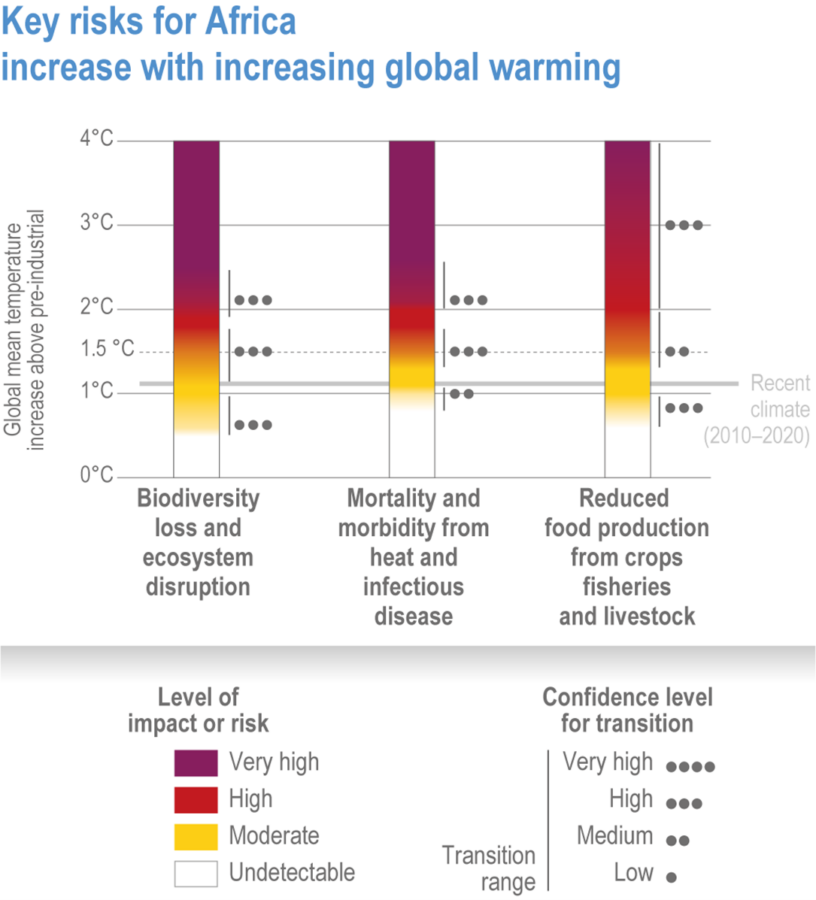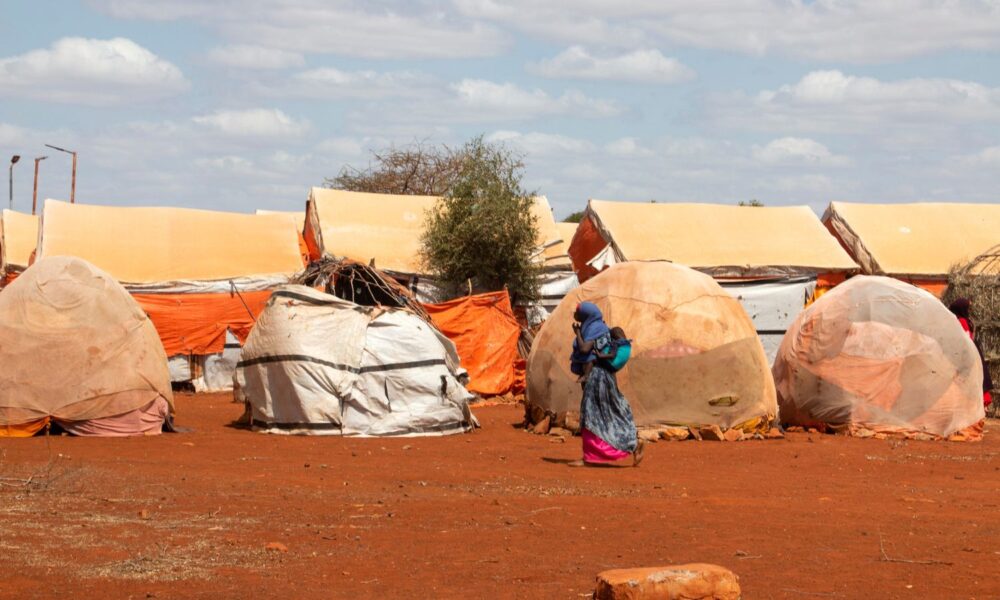On Monday, March 20, the IPCC will be publicly releasing a report synthesizing the latest climate science, the culmination of its sixth assessment cycle. With global heat-trapping emissions still on the rise and millions of people across the world still reeling from last year’s deadly and costly climate-related disasters, this report provides a distillation of all that scientists are bearing witness to, a collective howl for action, albeit delivered in precise technical terms. Please don’t be numb to the implications of this report; please don’t give in to gloom and doom either. This report matters because it reflects our reality and helps inform a blueprint for urgent action.
The conclusions we are likely to see in the forthcoming report are already clear from the three working group reports that the IPCC has released over the last two years in this sixth assessment cycle and previous special reports. Here’s the bottom line: Because of decades of politically motivated inaction from policymakers, especially in richer countries, and the greed of fossil fuel companies bent on extracting every last bit of profit, scientific projections show that we are currently on a trajectory to exceed 1.5˚C in global average temperature increase above pre-industrial levels within the next 10 to 15 years.
It is heartbreaking and infuriating to sit with this hard reality.
Even at about 1.1˚C now, we are already in a dangerous and deeply inequitable climate crisis. Which only reaffirms, with greater urgency, what we must (still) do to address climate change: phase down fossil fuels sharply and quickly while transitioning to clean energy, make deep cuts in heat-trapping emissions, and rapidly shore up resilience to worsening climate impacts. To do that in an equitable way, richer countries must meet their responsibility to provide funding for low-income nations to meet climate goals.
What’s also clear is that this is a challenge that goes well beyond carbon emissions—it is deeply rooted in an inequitable fossil energy and economic system. To solve it will take marrying our best, most innovative clean technologies to transformative changes in our socioeconomic and political systems that will help create a healthier, safer, more just world for everyone.
Who bears responsibility for climate change?
The IPCC is clear about the varying contributions to the heat-trapping emissions fueling climate change from different regions, with richer nations contributing the most to the problem (see figure below from the IPCC working group III report). For us here in the United States, knowing that the U.S. is the largest historical emitter of CO2 emissions, responsible for about a quarter of those emissions, our responsibility to act boldly is obvious.

Around the world, it is the rich who are responsible for the bulk of emissions. According to the IPCC: Globally, the 10% of households with the highest per capita emissions contribute 34–45% of global consumption-based household GHG emissions, while the middle 40% contribute 40–53%, and the bottom 50% contribute 13–15%. (high confidence)
Who bears the impacts of climate change?
We are all experiencing climate impacts; but low-income nations, communities with the fewest resources, and those most marginalized, are bearing the brunt of these impacts (and, often, the worst of fossil fuel pollution too). The continent of Africa is among the most climate vulnerable places, as the IPCC figure below, from the working group II report, shows.

The IPCC findings make clear that climate change is significantly increasing the likelihood of many kinds of human-caused, fossil-fueled disasters. For example, the WGII report states that:
- Climate change has caused substantial damages, and increasingly irreversible losses, in terrestrial, freshwater and coastal and open ocean marine ecosystems (high confidence).
- Climate change has adversely affected physical health of people globally (very high confidence) and mental health of people in the assessed regions (very high confidence).
- Climate change is contributing to humanitarian crises where climate hazards interact with high vulnerability (high confidence). Climate and weather extremes are increasingly driving displacement in all regions (high confidence), with Small Island States disproportionately affected (high confidence). Flood and drought-related acute food insecurity and malnutrition have increased in Africa (high confidence) and Central and South America (high confidence)
And our lived experiences confirm the science.
Perhaps you live in a community that has been ravaged by floods or drought or wildfires. Perhaps a terrifyingly intense hurricane has traumatized your neighborhood. Or a heatwave that took hundreds of lives. If we look around the world, we see people in Pakistan still struggling in the aftermath of the devastating floods they experienced last year. And 129,000 people in the Horn of Africa are ‘facing starvation and literally looking death in the eyes’ due to food insecurity triggered by an extended drought and multiple failed rainy seasons.
Perhaps you draw your livelihood or your sense of cultural heritage and belonging from nature and have seen directly the effects of climate disruptions throughout the natural world. Changes in long-standing seasonal patterns affecting growing seasons and the life cycles of birds and insects. The bleaching of corals or the front edges of a die-back of the mighty Amazon forests or the loss of precious species. Maybe it was the new research showing an irreversible thinning in Arctic ice that brought you up short.
We are already in a world of hurt, of steadily worsening and, in some cases, irreversible, changes that will profoundly affect the lives of generations to come. This is why the issue of richer nations providing climate finance to support a clean energy transition and climate resilience, as well as address loss and damage in low-income nations is so urgent.
We do have solutions—but they require transformative change
The IPCC is clear that deep cuts in heat trapping emissions are essential to meet climate goals.
All global modelled pathways that limit warming to 1.5°C (>50%) with no or limited overshoot, and those that limit warming to 2°C (>67%), involve rapid and deep and in most cases immediate GHG emission reductions in all sectors. Further: Reducing GHG emissions across the full energy sector requires major transitions, including a substantial reduction in overall fossil fuel use, the deployment of low-emission energy sources, switching to alternative energy carriers, and energy efficiency and conservation. The continued installation of unabated fossil fuel infrastructure will ‘lock-in’ GHG emissions. (high confidence)
The IPCC also underscores the need to think holistically and inclusively about solutions. In its working group II report, it states: This report recognises the value of diverse forms of knowledge such as scientific, as well as Indigenous knowledge and local knowledge in understanding and evaluating climate adaptation processes and actions to reduce risks from human-induced climate change. AR6 highlights adaptation solutions which are effective, feasible, and conform to principles of justice.
If you care about solving the climate crisis, please don’t be content with being dazzled by the latest advances in solar panels or electric cars (it’s okay to be dazzled—I am! Just don’t stop there). Please also think about the system within which that solar panel or car will exist, and the need to transform our current inadequate and unjust systems. We need a more modern, climate-resilient electric grid that can help integrate higher and higher levels of renewable energy. All communities—not just rich ones—should have access to clean energy and be able to breathe free of pollution from fossil fuels. And, as the IPCC shows, we can close the global energy poverty gap while cutting emissions, if we invest at the scale necessary.
Yet the necessary clean energy transition is being stymied by fossil fuel companies and the geopolitics of fossil energy. To solve the climate crisis, we must also break the power of the fossil fuel companies who are making obscene profits and pushing for ever greater expansions in fossil fuel infrastructure despite the clear scientific evidence that that is contradictory to our climate goals. The Biden administration’s recent approval of the ConocoPhillips’ Willow oil drilling project is just the latest egregious example.
The IPCC report may make you sad and angry—please ACT, too!
For many of us who devote our lives to cajoling, pushing, urging, demanding that policymakers heed the science and protect people, the latest IPCC findings may trigger profound grief and burning rage. Because we know our policymakers are failing us right now, despite knowing for so long what they needed to do to advance the many readily available solutions. Even worse, they continue to pander to fossil fuel companies bent on burning down the planet so they can reap a few more billions in profits. We are collectively at grave risk of losing a necessary, science-informed, and cherished goal of keeping the rise in global temperatures below 1.5˚C, which will bring devastating consequences to so many—and we know exactly where the blame lies.
Please take the pain, that burning anger, and channel it to addressing the systemic root causes of the climate crisis. Please also remember to take care of yourself and the people around you, find your community of support and joy and healing. We are in the fight of our lives, it will be a long fight, and a win is not guaranteed. But we know what the work is, and we are the people who must do it, now.

